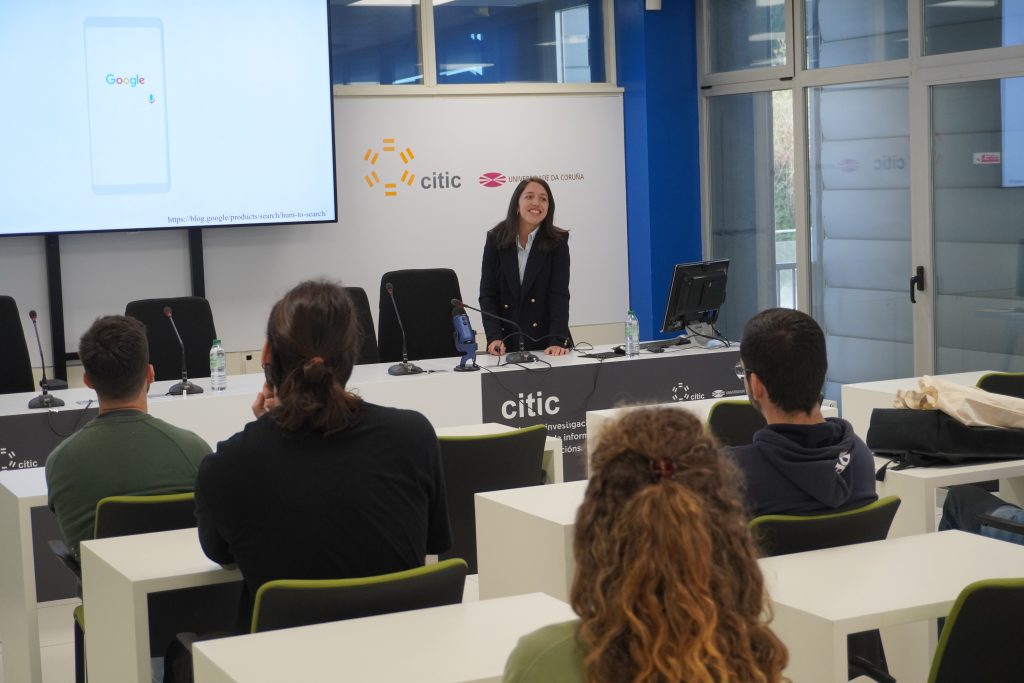
CITIC's TIC Talk Breakfasts at UDC: Connection between Music, Computer Science, and Economic Models
The Research Center in Information and Communication Technologies of the University of A Coruña resumes its TIC Talk Breakfasts series with two interesting talks held this Tuesday, September 24th. On this occasion, attendees were able to explore innovative connections between seemingly distant disciplines, such as music and computer science, as well as an introduction to stochastic models in economics.
On one hand, CITIC researcher Hilda Romero Velo, in her talk titled «Navigating Between Scores» took the audience on a journey through the depths of the musical world and its relationship with computer science. Romero posed intriguing questions such as: how do we recognize a song? What mathematical proportions underlie sheet music? And what do musical algorithms and DNA have in common? Additionally, innovative applications where music converges with other disciplines such as medicine or education were explored. Did you know that today a musician cannot search for sheet music by directly playing their instrument? This and other questions were answered in her presentation, revealing how technology is transforming the way we interact with musical art.
Researcher Jonatan Ráfales Pérez, on the other hand, presented «Stochastic Models in Economic Equilibrium Problems», a summary of his doctoral thesis that addresses heterogeneous agent models in continuous time in economic equilibrium problems. Ráfales focused on how productivity, as a stochastic factor, affects business decisions, determining the optimal time for companies to change sectors or cease operations. Through practical examples, he helped demystify the complexity of these models and their impact on the current economy.
The TIC Talk Breakfasts offer a unique opportunity to discover the latest advancements in various fields of knowledge, highlighting the importance of interdisciplinarity and the transformative potential of information technologies.





